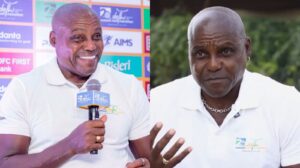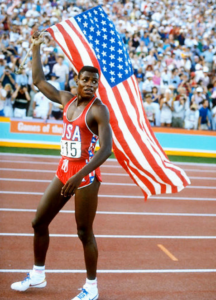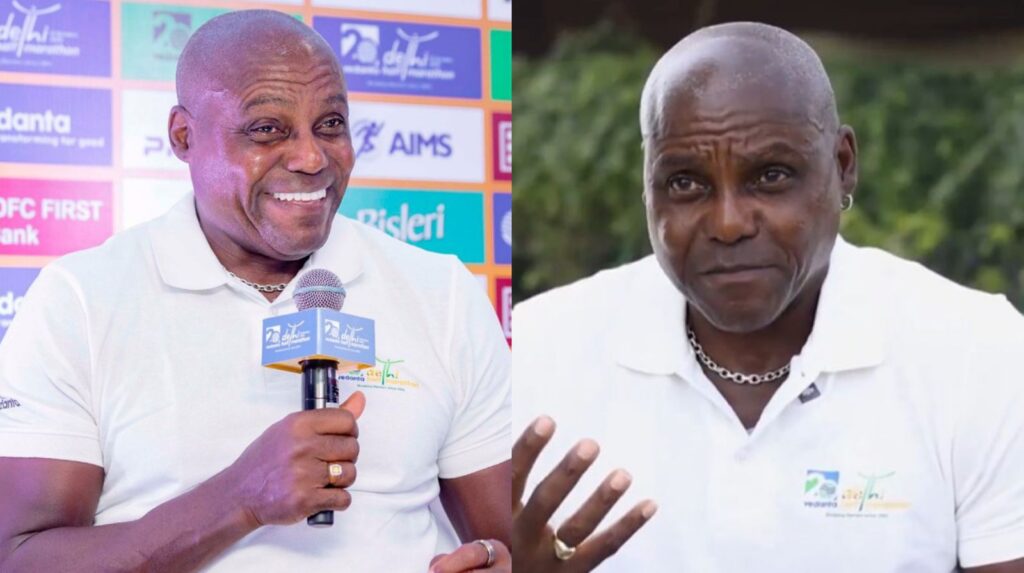
Boria Majumdar
Over a glittering career that encompassed four Olympic Games, nine golds, and a further eight at the World Championships, Carl Lewis was the most charismatic and celebrated athlete of his time. In this exclusive chat with Boria Majumdar, RevSportz editor-in-chief, he explains why India should bid for the Olympics, what made the long jump the hardest event, and why he feels it will be next to impossible to emulate a Jesse Owens, or himself, in the future.
Boria: What is the responsibility that you carry being Carl Lewis?
Lewis: It’s an interesting question. Everything happened to me and started pretty early. My first world record was at 19, and so I’ve been a public figure my entire life. It’s challenging. Obviously, I can’t do a lot of things that everyone else can do easily. But I don’t want to change it because this has opened up opportunities that I never could’ve imagined getting – like so many experiences, travelling et cetera. So, it’s been a wonderful life.
Boria: How does a Carl Lewis deal with adversity, like highs and lows, in terms of mental health?
Lewis: I think we have to start early, right at the beginning, on how to deal with adversity. Having the challenges in society, we now try to avoid adversity. And when it happens, we are not prepared to handle it. So for me, our parents made us independent. They walked us to and back from school until it was first day of kindergarten when they allowed us to walk ourselves. They gave us chores to do, so we were never in a space where we felt that we cannot handle things. And from the standpoint of an athlete, I realised very early because I was a late bloomer, that everyone doesn’t win. Everyone is not always going to have a great day. You have to get back, get better and work hard. Everything that we do is based on some level of preparation. Either we prepare to do it, or to not do it.
Boria: What did sports teach you?
Lewis: Well, sports taught me life lessons. It didn’t teach me about winning or losing at all. It taught me about people. When I was young and underdeveloped, I was unable to perform that well. I was not winning. That time, I saw people in front of me – how they acted. And when I started winning, I saw how people didn’t forget when I saw people losing. So, the bottom line, it has taught me a lot about people, how to treat people, how you would like to be treated, how to respect people, how to work hard and all the obvious things. Winning or losing were just consequences of these, I guess.
Boria: The versatility that you had, I don’t see in anyone else. And also the longevity. How was that possible?
Lewis: First of all, the order of doing things matters – it’s long jump, 100m, 200m , relay – and the order is the reason why you’re not seeing the versatility anymore. Long jump is probably one of the most difficult in all of track and field. People do not realise that early and they get older and realise how hard it is and eventually stop. On a scale of 10, I would say that if long jump stands at 10, then 100 metres is a 4/10, and the 200 metres is probably 3.5/10, which is not even close to the difficulty that long jump has. We are not in a society where we teach people to do hard things. We always suggest to avoid the tough things because you can still get rewarded by avoiding difficult things. I don’t think you’ll ever see a Jesse Owens again, as society is not being raised to take all the tough challenges. The minute it gets tough, people bail out.
Boria: Neeraj Chopra is a breath of fresh air on the athletics scene. Can there be more from India? A word on that.
Lewis: Yes, there should be more. What we are seeing, and not just in India but other countries as well, is the infrastructure with the youth. If you look at the explosion Africa has had, they started almost in the 1970s, getting access to running all around the world. And now, in 40-50 years, look at their success. From sprints to marathons, and they are getting better at other events as well. I think what India needs to do is focus on the youth, dedicate their energy into the youth. Another thing is to have youth programs like in the United States. Starting right from five-year-old kids, all the way to 21-22-year-old youth, giving them a chance.
If you don’t have a program at the early stage – and then when they get to college and really start to develop, there is program for that too – then they cannot be successful. They have to decide to commit to that area now. There’s absolutely no doubt in my mind that there is a finalist in the 100, 200, 400, 800, marathon and everything else because there are enough people and talent here to do that. Because India has enough people and talent to do it. There just hasn’t been the overall commitment to really establish what we are going do with our young people, supporting the young people, putting together programs where they can perform and develop through colleges as they get older.
Boria: Do you think it will be a good step for India to put forward a solid bid to host the Olympics? Do you think hosting in a way fundamentally transforms the sports scenario in the country towards better?
Carl: I will flip it. Instead of worrying about what has happened, I think India should look to bid, for it would be a fabulous thing. I think India will be a fabulous place to hold it and it will help from the sports point of view. It will help on a global stage, it will help with infrastructure because you’re going to help build training set-ups, stadiums, transportation – these kind of things happen when the Olympics come into the country. There will be people saying this is wasting money, but sometimes you have to kickstart new ideas. I think it will be a fabulous thing and India will do an incredible job. I really will support India bidding for the 2036 Olympics. It will be great for the global sports community, for India as a country, and especially the young people in India.
Boria: Anyone particular race that still lingers in Carl Lewis’s memory?
Lewis: That’s a great way to look at it. I think for me, it’s not really the winning, it’s the type of race it was. The best, most public, race was the 1991 in Tokyo [World Championships, where he set a world record in the 100m], but the winning the Olympic Games was probably the most emotional one. But the best race I ever had was the Olympic trials in 1984 – that was actually the best race I’ve ever ran technically in 100m. When I look back at these more, what matters or make it unique is how close was that race to perfection, as supposed to what I accomplished or what I got from it.

Boria: If there is ever an opportunity to come and do something for Indian sport in the longer term, will Carl Lewis consider that?
Lewis: Well, you know, it’s interesting. About 15 or 20 years ago, we were talking to some people about doing something for Indian sport, and I think the issue is focussing on areas where you can develop. For a while now, it has been Africa and now there are talks about looking for new places. Not only myself – I would definitely love to help and support India – but I think the global community would do too. America is fading, not just in athletics, but politically, globally, and socially. India is on the rise. There are probably millions of people that never would want to consider moving out of the country in the United States, but people here are considering moving there.
Africa is ending colonialism, consolidating 52 countries, keeping the resources to themselves, so they’re going to be an economic powerhouse in the future. It’s incredible for me to see the change in economy, who came here (India) in 1989 and China in 1990 . These are not developing countries; they are developed countries and are going to be economic powerhouses. China, Africa, India – they are going to lead the future economy. America is really on a sliding scale now.
Boria: Thanks a lot for your time, Carl.
Follow Revsportz for latest sports news
Watch the full interview here
🚨 Carl Lewis Exclusive
In this exclusive interview, legendary Olympian Carl Lewis speaks with @BoriaMajumdar about India’s sporting future, the need to bid for the 2036 Olympics, and what makes the long jump one of the hardest events in athletics. @Carl_Lewis #CarlLewis… pic.twitter.com/OD0FkYrrrh
— RevSportz Global (@RevSportzGlobal) October 12, 2025





